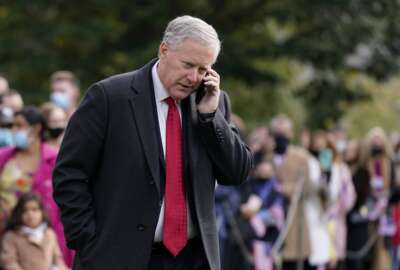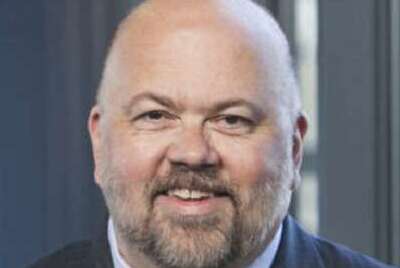The Hatch Act: A tiger with no teeth?
"The 2020 election revealed that, at least with respect to an administration’s senior-most officials, the Hatch Act is only as effective as the White House...
The Hatch Act scored, again, rare national attention last week, when the Office of Special Counsel issued the findings from its year-long investigation into political activities by various officials from the previous administration.
Perhaps you’ve already heard the highlights.
No, neither President Donald Trump nor Vice President Mike Pence violated the Hatch Act, the 1939 law that prohibits most in the executive branch from engaging in certain political activities as public servants. (Both the president and vice president are exempt from the Hatch Act’s coverage).
13 other Trump administration officials did, however, violate this particular law. They include former Secretary of State Mike Pompeo, who changed department policy to allow himself to speak at the Republican National Convention and referenced agency work in his speech.
Former acting Homeland Security Secretary Chad Wolf violated the act too, when he presided over a naturalization ceremony for the convention, OSC said.
The act of hosting the convention itself on White House grounds doesn’t rise to the level of a Hatch Act violation, OSC determined.
But the agency offered a sobering assessment of the law: “Indeed, the 2020 election revealed that, at least with respect to an administration’s senior-most officials, the Hatch Act is only as effective as the White House decides it will be.”
You might see this and think, “old news.”
After all, the report describes actions that took place more than a year ago by officials who are no longer in government, at least for now.
Career feds take regular Hatch Act training, and so maybe for you, this news isn’t particularly shocking or interesting.
It’s worth noting, OSC has identified Hatch Act violations from across the political spectrum over the years, from former Obama-era Housing and Urban Development Secretary Julian Castro to former Trump counselor Kellyanne Conway.
Citizens for Responsibility and Ethics in Washington filed a Hatch Act compliant against current White House Press Secretary Jen Psaki earlier this year for some comments she made about the Virginia gubernatorial race. OSC has yet to weigh in on that one, though Psaki apologized.
The events that transpired last fall at the Republican National Convention garnered headlines and national media attention. At the time, we asked federal employees for their thoughts. Some said they viewed the Hatch Act as a blessing in disguise, because it helped keep unwanted political discussions away from the office.
Others seemed offended by last year’s events. “If I follow it, EVERYONE should follow it and there must be stiffer penalties with more enforcement,” one reader said on Facebook.
You can read more comments from last year’s column here.
No, the Hatch Act isn’t really dinner table conversation. But what of the comments former White House Chief of Staff Mark Meadows made last summer that “nobody outside the beltway really cares?”
“In direct contradiction to that unfortunate comment, OSC was inundated with calls, emails and complaints from members of the public in response to the violations described in this report,” the agency wrote.
“The cumulative effect of these repeated and public violations was to undermine public confidence in the nonpartisan operation of government,” OSC added. “Equally troubling, the obvious noncompliance by senior administration officials also caused career federal employees to ask OSC whether they were still required to comply with the Hatch Act.”
That last sentence could be a bit concerning. It certainly was for OSC, which listed seven challenges that currently prevent it from doing much of anything about the Hatch Act violations it identified last year — or really many other infractions from high-level political appointees.
For career feds, the consequences of violating the Hatch Act can be severe. OSC has the statutory authority to investigate potential violations of this particular law. Punishments range from a warning letter to removal, with prosecution before the Merit Systems Protection Board. OSC can (and often does) attempt to settle with the employee or negotiate an informal resolution.
But when it comes to enforcing violations among Senate-confirmed officials and other senior political appointees, the consequences are different. OSC can only submit a report to the president, and it’s up to the president to discipline the appointee.
So what happens next?
Probably not much. As OSC acknowledged, its Hatch Act investigations can take weeks or months to resolve. This report came out about a year after the events in question. Sure, maybe it’s “old news.”
But the agency did identify some ideas to give the Hatch Act some more teeth. Congress, for example, could allow OSC to pursue monetary penalties against Senate-confirmed appointees and the president’s commissioned officers.
The MSPB, still currently without a quorum, could receive the jurisdiction it would need to handle cases involving former employees who violated the Hatch Act during their federal careers.
Currently, OSC has no authority to issue new regulations on the Hatch Act, though Congress could give the agency rulemaking authority.
And when a political official engages in campaign activities while in his or her government capacity, OSC has no clear way to collect reimbursements for taxpayers for the costs of the travel. Congress, again, could allow OSC to seek those reimbursements.
Will it happen? Well, that’s a different story.
“Moving forward, senior executive branch officials must not allow compliance with the Hatch Act to be viewed as optional or an unnecessary burden,” OSC said. “Indeed, lower-ranking employees have faced, and continue to face, potentially severe consequences, including removal from federal service, for violating this law. OSC hopes that the enforcement challenges identified in this report can be addressed and that the conduct of the Trump administration officials described in Part III turns out to be an anomaly, not a precedent.”
Nearly Useless Factoid
By Alazar Moges
Source: Dental Associates
Copyright © 2024 Federal News Network. All rights reserved. This website is not intended for users located within the European Economic Area.
Nicole Ogrysko is a reporter for Federal News Network focusing on the federal workforce and federal pay and benefits.
Follow @nogryskoWFED






